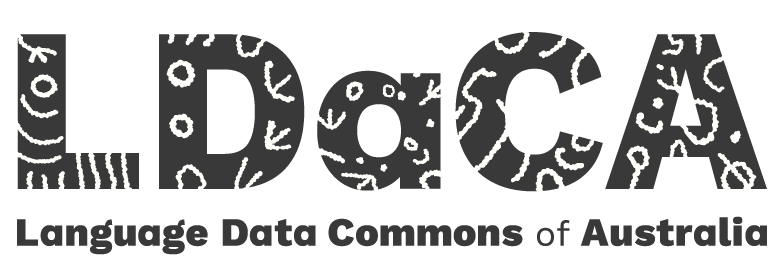Language Technology and Data Analysis Laboratory (LADAL)

Welcome to LADAL!
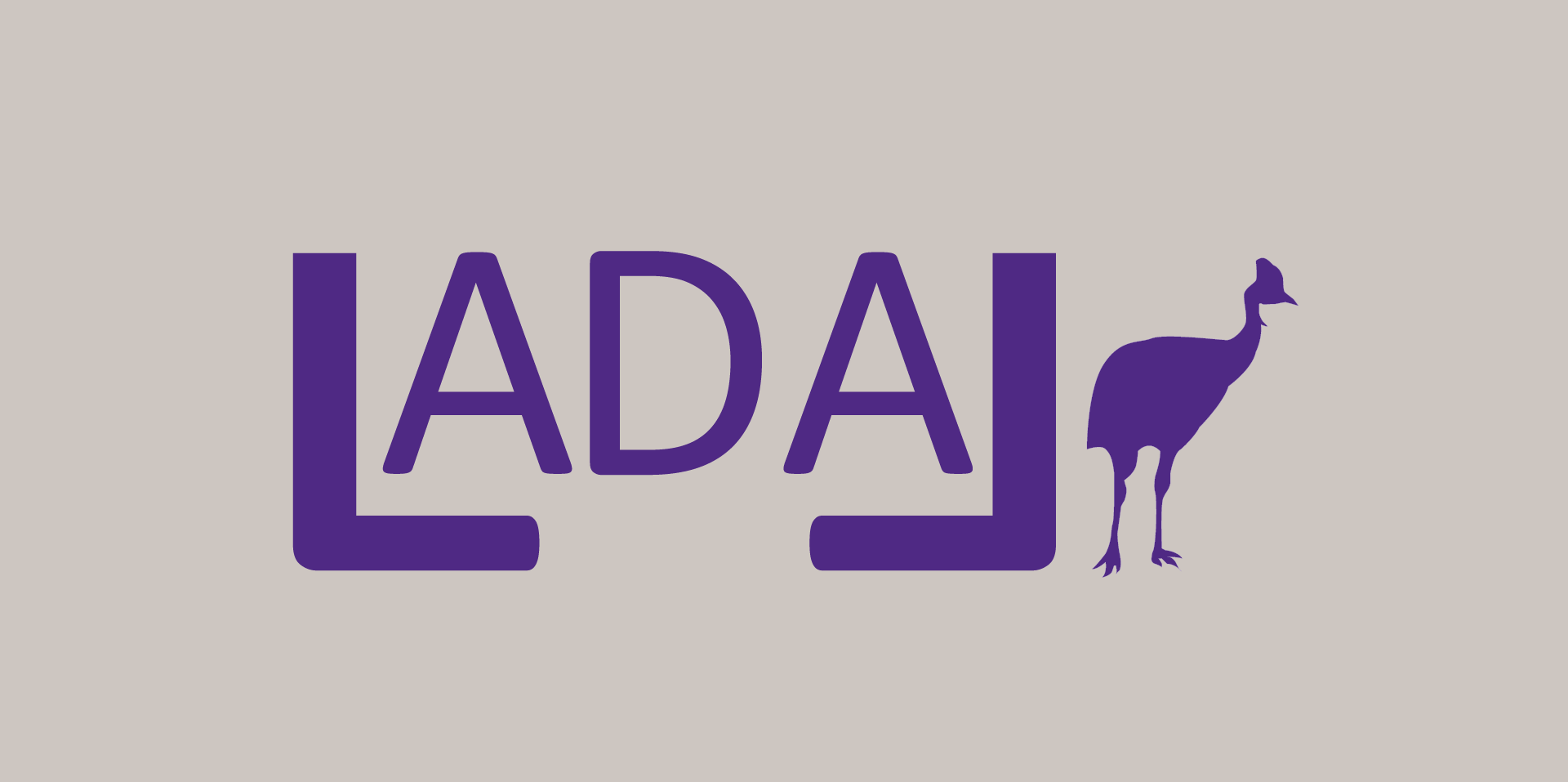
Established in 2019 by the School of Languages and Cultures at the University of Queensland, LADAL is a collaborative support infrastructure for digital and computational humanities.
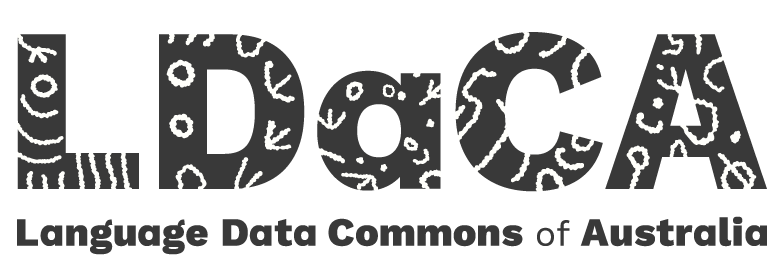
LADAL is proud to be part of the Language Data Commons of Australia (LDaCA), a national research infrastructure providing researchers with:
- Data access: Searchable language datasets from Australian sources
- Analysis tools: Browser-based notebook environment
- Training: Comprehensive learning resources
- Support: Expert guidance and community
LDaCA’s mission: Make language data more powerful and customizable than standard packages, while remaining accessible to researchers without strong coding skills.
The Language Data Commons of Australia (LDaCA) (DOI: 10.3565/kq2v-9g52) is a co-investment partnership with the Australian Research Data Commons (ARDC) through the HASS and Indigenous Research Data Commons.
The ARDC is enabled by the Australian Government’s National Collaborative Research Infrastructure Strategy (NCRIS).
Our Impact
What You’ll Find at LADAL
Comprehensive Learning Resources

Foundations
- Quantitative reasoning and research design
- Introduction to R programming
- Data management and reproducibility
- Best practices for digital research
Data Analysis
- Data visualization and graphics
- Descriptive and inferential statistics
- Regression and mixed-effects models
- Machine learning methods
Text Analytics
- Concordancing and corpus linguistics
- Collocation and keyword analysis
- Topic modeling and sentiment analysis
- Word embeddings and semantic analysis
- Natural language processing
Applied Research
- Case studies from real research projects
- Domain-specific applications
- Reproducible research workflows
- Publication-ready analysis
Learning Formats
Self-Paced Tutorials
- Step-by-step guides with downloadable code
- Complete explanations of methods
- Practice exercises with solutions
- Real-world examples
Interactive Notebooks
- Run code directly in your browser
- No installation required
- Experiment safely with examples
- Immediate feedback
Live Events
- Workshops and seminars
- Webinar series
- Guest lectures
- Community discussions
Quick Guides
- How-to documents
- Troubleshooting tips
- FAQ sections
- Code snippets
Our Principles
Why R?
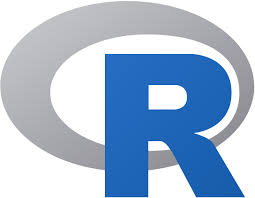
LADAL primarily uses R because it’s the ideal language for language research:
Advantages
- Free and open-source - No licensing costs
- Purpose-built for data - Designed for statistical analysis
- Powerful text processing - Excellent for NLP
- Beautiful visualizations - Publication-quality graphics
- Reproducible research - R Markdown and literate programming
- Huge ecosystem - 20,000+ packages available
- Friendly community - Extensive online support
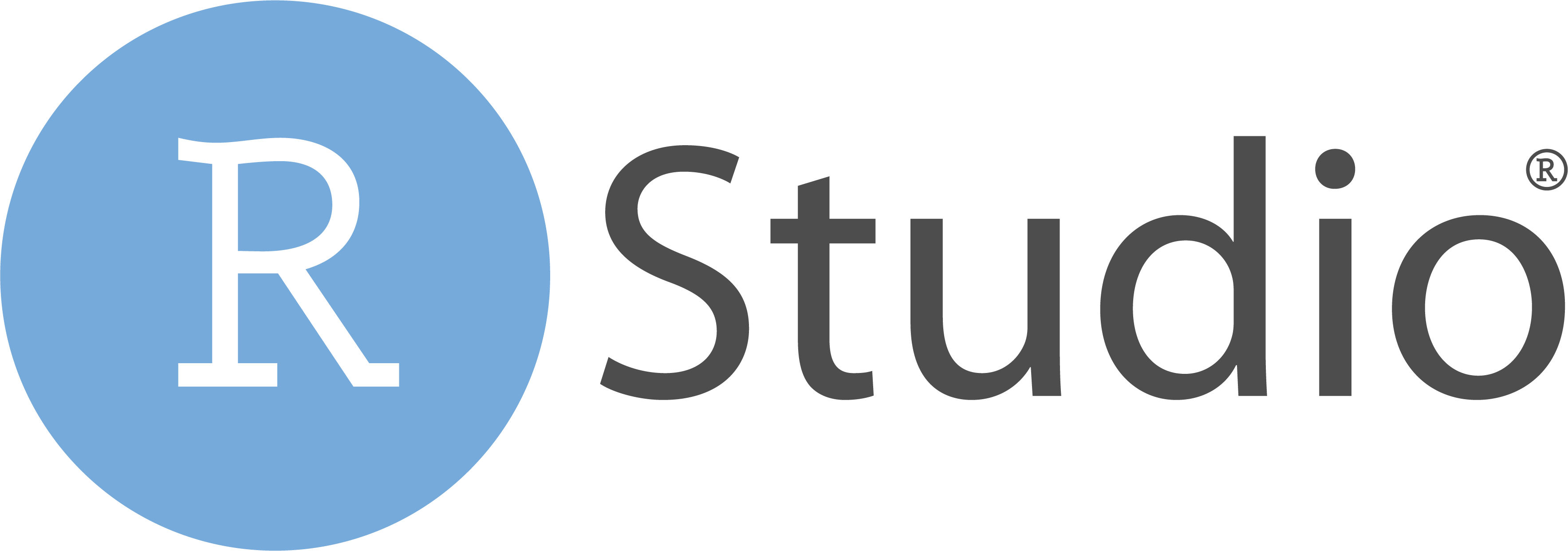
What makes R special
- Not just software—a complete programming environment
- Seamless integration: stats + NLP + visualization + reporting
- Version control integration (Git/GitHub)
- Can create websites, apps, and interactive content
- This very website is written in R!
Looking ahead
While R is our foundation, we’re expanding to include Python tutorials to serve the broader research community.
Learn more: Why R? page
Who LADAL is For

Everyone Working with Language Data
By Discipline
- Linguistics: Corpus, computational, sociolinguistics
- Digital Humanities: Literary analysis, cultural studies
- Social Sciences: Survey analysis, discourse studies
- Natural Sciences: Data analysis, statistics
- Industry: Text analytics, NLP applications
By Experience Level
- Complete Beginners: Never coded before? Start here!
- Students: Undergraduate to PhD level
- Researchers: Active in academia or industry
- Educators: Teaching computational methods
- Experts: Looking for advanced techniques
By Research Focus
- Language variation and change
- Sentiment and opinion analysis
- Authorship attribution
- Machine translation
- Information extraction
- Social media analysis
- Literary stylistics
- And much more!
You don’t need
- ❌ Prior programming experience
- ❌ Mathematical background
- ❌ Computer science training
- ❌ Expensive software licenses
You just need
- Interest in language data
- Willingness to learn
- Computer with internet connection
- Curiosity about computational methods
We’ll teach you everything else!
Get Started
User Stories
What Our Users Say

Paula Rautionaho
University Researcher, University of Eastern Finland
“I learned about the LADAL website at a conference and since then I’ve been going through the contents bit by bit, starting with R and Data science basics and the many tutorials available.
The website is great for acquiring basic knowledge, and I’ve also used it to find information on specific methods that I need for my research. The way the code is explained in detail and exemplified through actual studies, and the fact that the code is downloadable from the site, are extremely useful and helpful.
What I usually do is download the string of code, go through each line to understand what’s going on and then modify it to my needs. The website also helps in understanding the output of statistical analyses, which for me is what sets this resource apart from many others.”

Laura Janda
Professor of Russian, The Arctic University of Norway, Tromsø
“LADAL is a tremendously valuable resource that I recommend to all my students in my Quantitative Methods in Linguistics course.
Given the broad portfolio of various courses that I teach plus my numerous other commitments, combined with the rapid pace of developments in both R itself and its application to linguistic analyses, it is not possible for me to keep apace with all of the developments all of the time.
It is very important to have an authoritative and comprehensive resource that represents current best practices in the field, and that is exactly what LADAL is.”

Robert Daugs
Postdoctoral Researcher, University of Kiel, Germany
“It’s great to see how the content has evolved and it seems that whenever I come across a method I hear about in another talk or read in a paper and wish to implement in my own research (or just try it out), a corresponding script with meaty instructions is already available at LADAL.
The tutorial I probably came back to more than once actually covers mixed-effects regression modeling. Given this method’s value in corpus-based, variationist linguistics and elsewhere, I think it’s great that this tutorial made the cut and I’m looking forward to any further updates the LADAL crowd might have planned for this.
Thanks for such a wonderful, open access resource!”

Touba Warsi
Analyst, School of Medicine, University of California San Diego
“I was very happy to find the text analysis tutorial for text analysis in R. Up-to-date and super helpful!
I use it for mining open-ended student survey comments with the hope of identifying themes, glean feedback without resorting to human coding of the comments.
Please keep up the great work!”

Eliane Lorenz
Senior Researcher and Lecturer, University of Giessen, Germany
“I have known (and also used) the LADAL website for some time now. It is a tremendously useful and powerful resource that has helped me multiple times, both in teaching as well as in my research.
I keep recommending LADAL to my students and colleagues, also to those who are absolutely new to R and often scared to even get started.
Currently, I am working on survey data and have checked out the data visualization tutorial and managed to adapt the code to my needs. What is special—in my opinion—about this and all other tutorials is the clear and transparent documentation as well as availability of data and code.
First, you go through the script and follow the steps based on the data available at LADAL, and second, you adapt the code and apply it to your own data.
Thanks for this amazing, open access resource. I look forward to working through and learning with other tutorials available at LADAL.”
Connect with Us
Join the LADAL Community
We’re building a global community of researchers passionate about language technology and data analysis. Join us!

Stay Updated
Email List
Subscribe for announcements, new tutorials, and events
- Email ladal@uq.edu.au with subject “email list”
Social Media
- Twitter/X: @slcladal
- Facebook: LADAL page
Video Content
Watch talks, workshops, webinars, and tutorials at your own pace on the LADAL YouTube Channel
Get Involved
For Users
- Questions: ladal@uq.edu.au
- Feedback: We want to hear from you!
- Report Issues: Found an error? Let us know
- Share Stories: Tell us how LADAL helped you
For Contributors
- Become a Contributor: Share your expertise
- Suggest Tutorials: What would you like to see?
- Improve Content: Suggest enhancements
- Translate: Help make LADAL multilingual
For Educators
- Use in Teaching: All content freely available
- Request Workshops: Bring LADAL to your institution
- Collaborate: Partner with us on projects
Contact Information
General Inquiries:
ladal@uq.edu.au
Physical Address:
School of Languages and Cultures
University of Queensland
St Lucia, QLD 4072
Australia
Events and Opportunities
Workshops and Webinars

LADAL regularly hosts events to connect the community and provide hands-on training.
What we offer
- Workshops: Intensive training on specific topics
- Webinars: Online presentations from experts
- Lecture Series: Extended course sequences
- Q&A Sessions: Ask the experts
- Community Meetups: Connect with peers
Past highlights
- LADAL Webinar Series 2021
- Regular workshops on R, statistics, and text analytics
- Guest lectures from international researchers
Upcoming events
Check our News page and social media for announcements!
Want to Present?
We welcome proposals for workshops and webinars. Contact us at ladal@uq.edu.au
Using LADAL Resources
Citation
If you use LADAL tutorials in your research or teaching, please cite them!
Individual tutorials
Each tutorial page has a citation at the bottom—use that for specific tutorials.
General LADAL citation
Schweinberger, Martin. 2026. The Language Technology and Data Analysis Laboratory (LADAL). Brisbane: The University of Queensland, School of Languages and Cultures. url: https://ladal.edu.au/ (Version 2026.02.09).
BibTeX:
@manual{uqslc2026ladal,
author = {Schweinberger, Martin},
title = {The Language Technology and Data Analysis Laboratory (LADAL)},
note = {https://ladal.edu.au},
year = {2026},
organization = {The University of Queensland, School of Languages and Cultures},
address = {Brisbane},
edition = {2026.02.09}
} Licensing

Free and Open:
All LADAL content is freely available under the GNU General Public License, Version 3.
What this means
- Use LADAL content in your teaching
- Adapt code for your research
- Share with students and colleagues
- Build upon our work
Requirements
- Cite LADAL appropriately
- Keep derivatives open-source
- Maintain license notices
Creator
LADAL was created by Martin Schweinberger with contributions from the research community.
Roadmap and Future
Frequently Asked Questions
Acknowledgments

Thank You
LADAL exists because of:
Institutional Support
- University of Queensland, School of Languages and Cultures
- Language Data Commons of Australia (LDaCA)
- Australian Research Data Commons (ARDC)
- HASS and Indigenous Research Data Commons
Funding
- NCRIS (National Collaborative Research Infrastructure Strategy)
- Australian Research Data Commons (ARDC)
- Australian Government support
- University of Queensland
Community
- Tutorial contributors and reviewers
- Workshop participants and feedback providers
- Our global user community
- Open-source R community
Partners:
- LDaCA infrastructure partners
- Universities and research institutions worldwide
- Digital humanities networks
- Language technology communities
Legal Disclaimer
Important Legal Notice
The content of this website is provided free of charge and comes with ABSOLUTELY NO WARRANTY.
You are welcome to redistribute LADAL content under the terms of the GNU General Public License, Version 3, June 2007.
Use at your own risk
- Content is provided “as is”
- No guarantees of accuracy or fitness for purpose
- Users responsible for verifying results
- Not liable for any damages from use
Best efforts
While we strive for accuracy and quality, errors may occur. If you find issues, please report them!
Share and Enjoy! 🎉
